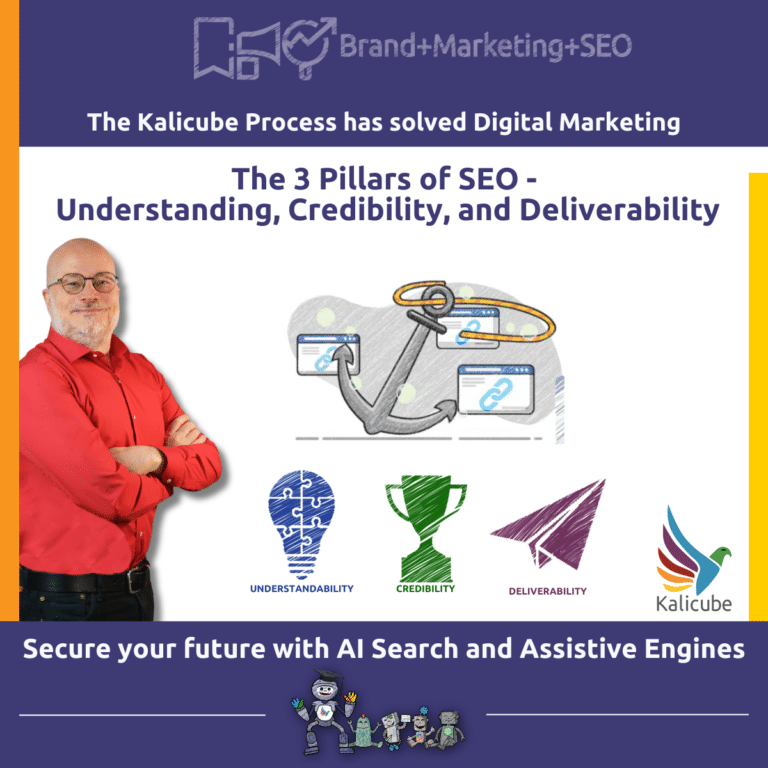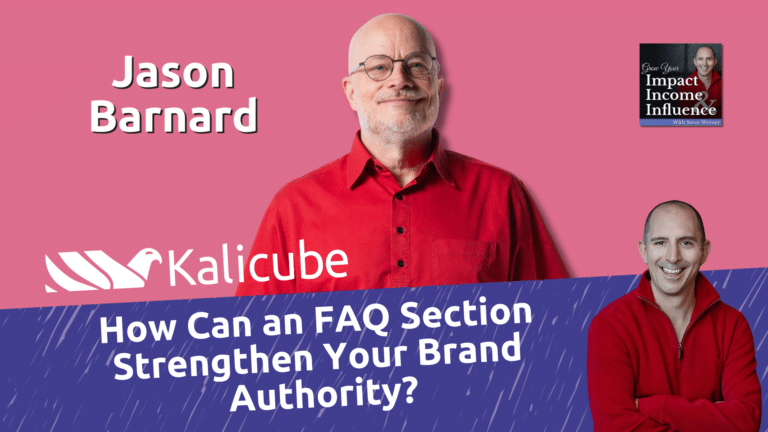Measuring Knowledge Panel Levels for a Company: Everything You Need to Know

Measuring Knowledge Panel Progress requires understanding how Google builds its fact base and adds these facts to a Knowledge Panel.
Knowledge Panels grow progressively, but the progression isn’t linear. Why? A Knowledge Panel is a visible representation of Google’s understanding of the facts about a company or corporation (the entity). Google corroborates its facts about an entity using trusted sources on the internet and stores them in its Knowledge Graph or “master brain.” The facts are added to the Knowledge Graph and triggers a Knowledge Panel for the entity when Google is confident it has verified a fact.
Kalicube uses a china plate analogy when measuring Knowledge Panel Progress. Companies have information online that is inconsistent, like a broken china plate. Outdated biographies, old addresses and phone numbers, and descriptions on social media platforms and online directories. Is your company’s LinkedIn description different from your Facebook description?
The Google Algorithms try to piece together the broken plate, but the algorithms are confused by inconsistencies, and verification and corroboration take longer.
The Kalicube Process™ identifies the inconsistencies, fixes them, and gives companies an unbroken china plate the algorithms can use as a home base for facts.
Kalicube is able to get any company a Knowledge Panel. The question is how long it takes to build a complete and comprehensive Knowledge Panel.
When Google gives a company a Knowledge Panel, Google is signalling that it is fully implementing EEAT credibility signals. Experience, expertise, authority, and trustworthiness are EEAT credibility signals that boost SEO performance across the board because Google knows, likes, and trusts you. A Knowledge Panel is Google’s Stamp of Approval. And that’s amazing for business.
Knowledge Panel Levels
Building a Knowledge Panel is fun. The Kalicube Process measures Knowledge Panel Progress for companies using 14 Levels. Business leaders quickly see the Knowledge Panel Level for the company and the steps to the next Level.
Pro Tip: A Level 3 Knowledge Panel may display elements from Level 7. Why? The algorithms have verified pieces of the broken plate that complete Level 3 and include some Level 7 elements, but the algorithms haven’t verified the facts for Levels 4 – 7. Knowledge Panels that have reached a Level and display elements from other Levels are categorized as Level 3 + the number of elements from higher Levels. Level 3 +2, or Level 4 +1, for example.
The Kalicube Process uses the Levels to identify missing elements, attributes, and information so Knowledge Panel progress is as linear as possible.
Regular focus on the steps required to reach a new Level and earn a safe and stable Knowledge Panel within 12 months. Kalicube does 80% of the heavy lifting but relies on your help, too.
Build all 14 Levels in full, and your entity has a Knowledge Panel that is information-rich, safe, stable, and embedded in Search Generative Experience results. Groovy!
The Kalicube Process has triggered thousands of Knowledge Panels. Kalicube Pro contains 3 billion data points and tracks over 50 million active Knowledge Panels, giving you a step-by-step action list to progress your Knowledge Panel fast.

Level 1: kgmid
The entity will be given a kgmid (Google Knowledge Graph ID).

Level 2: Knowledge Panel Name
Level 2 is the basic level where a Knowledge Panel displays the name of an entity.

Level 3: Knowledge Panel Logo
Level 3 has all the elements in Level 2 with a logo.

Level 4: Knowledge Panel Subtitle
Level 4 has all the elements of Level 3, plus a subtitle below the entity name.

Level 5: Entity Home
The entity has an Entity Home. The Entity Home is a website page or website that Google recognizes as the authoritative source for factual information about a given entity (the business).

Level 6: Knowledge Panel Attribute
This Level includes all the elements of Level 5, plus an attribute. Attributes include things such as founders, founded date, headquarters, and CEO.

Level 7: More Knowledge Panel Attributes
Level 7 has the elements from Levels 1 – 6 and 3 attributes. Attributes include subsidiaries, stock price, headquarters, and CEO.

Level 8: Google Knowledge Graph
The entity will get added to Google’s Knowledge Graph. The corporation is moved to Google’s Knowledge Graph fact vault. Woo Hoo!

Level 9: Social Media Profile
Level 9 includes all the elements in Level 8 and a social media profile.

Level 10: More Social Media Profiles
Level 10 has all the elements in Level 9, plus 3 social media profiles.

Level 11: Knowledge Panel Description
Level 11 includes all the elements in Level 10, plus a description of the entity.

Level 12: People also search for
Level 12 Includes all the elements in Level 11 plus a new element, “People Also Search For.”

Level 13: Entity Statements
Level 13 includes all the elements in Level 12, and a new element, Entity Statements or “People also ask” is added.

Level 14: Google Search Generative Experience
Level 14 includes all the elements in Level 13, Search Generative Experience (SGE) result triggers for searches about the entity.


Where is your entity in the Knowledge Panel Progress?
Where your entity is in the Knowledge Panel Progress is vital. A Knowledge Panel is your Google Stamp of Approval. Google is able to fully apply your expertise, experience, authoritativeness, and trustworthiness (EEAT credibility signals) to your entity because it does not doubt who you are. A Knowledge Panel is your online business card. People do business with businesses they know, like, and trust. An information-rich, visually appealing Knowledge Panel about your company is impressive, builds trust, and secures new business.
Taking action and actively educating Google about who you are ensures your entity is embedded in Google’s brain, and included in the AI SGE results. The business is able to present its brand how it wants to. Failing to act now means getting lost in the abyss of Internet darkness.
The Kalicube Process is built on feeding the foundational search engine algorithms that determine the search results when a user performs a search. The Kalicube Process is not a shiny new tool that responds to AI advancements. It’s a fundamental process that aims to entrench your brand at the core of the search engine’s understanding so that no matter how your information appears in search, it appears how you want it to – yesterday, today, and tomorrow.
The team at Kalicube does 80% of the work for you. All you do is the 20% that we’re unable to do. Get in touch today.
Contributor:

Jean Marie
Website Content Manager. Joined Kalicube in February 2022
LinkedIn: www.linkedin.com/in/jeanmarielaurente
Email: [email protected]



